- Home
- Michael Dobbs
The Lords' Day (retail) Page 13
The Lords' Day (retail) Read online
Page 13
He rubbed his gut, still sore from the blow of the rifle butt. It told him all he needed to know. ‘The terrorists are serious. It’s going to be tough negotiating our way out.’
‘So what’s the alternative?’
‘I’m a diplomat, Madam President. You’re asking for a political judgement.’ And a deeply personal one, he thought, with her son inside.
‘What do you know of their Home Secretary, Tricia Willcocks? Is she up to this?’
He considered the question as yet another convoy of white vans pulled up and began unloading a small arsenal of weapons. ‘She’s ambitious, a little too obviously so for many. Has a reputation for taking advantage of every opportunity – and any man – that might be useful to her.’
‘A tough cookie, then.’
‘The sort of woman who insists on making her mark. Has a personalised number plate on her car, and in this country that’s still considered brash.’
‘Not a team player, then.’
‘Her colleagues wouldn’t think so.’
‘I sense she has no overwhelming desire to climb into bed alongside me, either.’
‘You asked me for a gut feeling, so I’ll risk it. If she stays true to form, it’s my judgement she’ll play this for her own advantage.’
‘Meaning?’
‘Whatever else happens, she’ll not give up Daud Gul unless she’s forced to do so. And there’s no one left around here to force her. She knows the British media will crucify her if she is seen to be weak – the woman that wobbled. Cracked up, just like John Eaton has. They’ll compare her to Maggie Thatcher and conclude she has nothing but a cotton bud for a backbone. She won’t allow that to happen. So she won’t let Daud go.’
‘Kind of narrows the options.’
‘The trouble is, Madam President, that I don’t think the terrorists are in a mood to accept anything less. We are – all of us – walking very close to the edge on this one.’
There was silence from the Oval Office; the President didn’t seem to care for what she had heard.
‘Madam President, I need your instructions.’
‘Bob, tell me . . .’ The words hobbled along in torment. ‘How is my son? How’s William-Henry bearing up?’
‘Oh, you can be so proud of him, Madam President. A chip off the Harrison block, if you’ll permit me to put it like that. He gave me a message. Simply asked me to tell you that he loves you very much.’
Silence screamed down the line. For a moment he thought the connection had been cut.
‘I need to know what you’d like me to do,’ he pressed.
‘I can’t order you back inside there, Bob. This is too personal. You’ve got to use your own judgement.’
‘My judgement is very simple, Madam President. If I fail to go back, they will shoot your son. But if I do, I think they will shoot me.’
‘Bob, if I could take your place, you know I would.’
‘I don’t doubt it for a second. But I also hope you know me well enough to trust that I’ll do whatever is necessary.’
‘I’m struggling to know what the right thing is here, Bob.’
‘The Harrisons have always found it in the past.’
‘The Harrisons and the Paines – I guess our families go back a long way, don’t they?’
Yet only the Harrisons will go forward, he thought, but dared not say so. The memory of his son swam before his mind and he bit his lip until it bled. ‘Yes, Madam President,’ was all he could summon up as a response.
‘I think I know what the first William-Henry would have done. He wouldn’t have sat on his butt and waited to be told what to do by others.’
‘I don’t doubt it.’
‘But what will Tricia Willcocks do? That’s the question.’
‘Sadly, Mrs Willcocks remains something of a mystery.’
‘Then perhaps we should find some way of giving the lady a shove . . .’
6.33 p.m.
‘They found them, Harry, just as you said they would,’ Tibbetts said.
‘What’s that, Mike?’
‘The missing guests. The ones in wheelchairs. Two of them, meant to attend as representatives of the Disabled People’s Council. Instead they had their throats cut and were left to bleed to death.’ The policeman slapped the table in bitterness. ‘Why the hell didn’t they just shoot them, get it over and done with cleanly?’
‘Makes no noise, slitting a throat.’
‘I’ll take your word for it.’
‘Anyway, they’re mountain people, Mike. Never been conquered or suppressed, not in all their history. Moghals, Sikhs, Russians, British, we’ve all tried it and none of us has succeeded,’ he said, pouring out the contents of a thermos flask into two Styrofoam cups and handing one to the policeman. ‘But then we got lucky and dragged their leader off in chains. Bound to end up messily.’
‘They’re terrorists! They created this mess.’ The policeman spat the coffee back into the cup. ‘And there’s no bloody sugar.’
Harry tossed him a sachet of sweetener. The table they had commandeered in the small post office was already covered with coffee smears and crumbs. ‘When the British first fought them and we got beaten, we took our reprisals by tying our prisoners across the barrels of loaded cannon. Now that’s what I call a mess.’
‘Right now I’d settle for that.’ Tibbetts pinched the bridge of his nose, trying to squeeze life back into his battered brain.
‘But there’s something I really can’t understand, Mike,’ Harry continued.
‘Ah, at last, something you don’t understand either. Thank God. Frankly, I was getting rather brassed off being left behind by you all the time.’
‘They’re mountain people,’ Harry said again, ignoring the sarcasm, ‘from halfway round the world. They’re street fighters – or whatever passes for streets in the villages of Waziristan. These people don’t mount campaigns, they just descend upon you one evening to slice the balls off you, then it’s back to chasing sheep. They don’t plot and plan, they just do it.’
‘And your problem?’
‘So how come they end up here so well prepared?’
‘The weapons, you mean?’
‘Not just that. It’s . . .’ He kicked a wastepaper bin for inspiration. ‘Look, they know what to do – and who to do it to. They’ve tied up the House of Lords tighter than a nun’s knickers. Figured out the security, knew where to get the passes . . .’
‘The Pakistani High Commissioner. Perhaps he did all that.’
‘Come on, Mike, you’ve seen him in there, he’s not the leader, he’s not much more than a mule employed to carry the stuff in for them. Anyway, he’s only been in the country a few weeks.’ Absentmindedly he retrieved the battered bin, then placed it carefully on the table, suddenly regarding it with exceptional curiosity as if it had changed from a bit of tin to something of wondrous value. ‘You know, it was the loos that did it for me.’
‘Beg pardon?’
‘The loos. The portable lavatories.’
‘You must be very tired.’
‘No, Mike. When I brought them in they told me where to put them, in those closets. I didn’t know about those closets. Been around this place ten years or more, never knew they were there. I doubt most people have the slightest idea they exist; they’re not part of the usual tourist trail. But these tobacco-spitting men from the mountains, they knew all about them. How do you suppose that was, then?’
‘I’ve no idea. But I’ve got a horrible suspicion you’re going to relieve me of my ignorance.’
Harry grew still, like a cat preparing to pounce, making sure of his foothold. ‘Someone else organised this, Mike.’
‘You’re losing it, my friend.’
‘No, Mike, it’s the only way. These guys could never have pulled this off without help. Couldn’t have found their way to the airport by themselves, let alone burrowed into the hidden depths of the English Establishment. They’re just the choirboys. Somewhere out there is – let’s call him a cardinal
, someone who knows where all the priest holes are, and how to really piss off the congregation.’
‘Fascinating. And of course you have a name, perhaps an inside leg measurement.’
‘Not yet.’
‘Thank God. I think we’ve got our hands full enough with the bastards we already know about, let alone those who seem to be swimming around in the bottom of your bin.’
‘Yes, you’re probably right.’ He finished off the last of his coffee in one draught. ‘But there is one thing you might be able to help me with, Mike.’
‘What’s that?’
‘That inside leg measurement. Do cardinals wear trousers underneath the rest of their clobber?’
7.00 p.m.
‘We’ve got him, Home Secretary!’ the man from M15 enthused as they gathered once more at the Cabinet table in Downing Street. ‘Masood. From Waziristan, as we previously thought – the High Commissioner, too. All of them. From the Mehsud tribe.’
‘So when you say we’ve got him, you mean it in the sense that . . . ?’
The question hovered above the table.
‘In the sense that we know who he is,’ M15 responded, deflated, searching surreptitiously through his pockets for his nicotine stick. She was good at that, deflating men.
‘Ah, I see,’ Willcocks said. She had made her point, no need to push the matter any further, least of all to remind him that it was not he but that wretched man Jones who raised their identities as Mehsuds. She smoothed an imaginary wrinkle from the tablecloth with the flat of her hand. Why did she dislike Harry Jones so? His attitude? His arrogance? His wealth that made him impervious to the pressures that can be applied to most others? Or was it simply that he was one of the few men who might, just might, be better than she was?
‘What other progress can we report? It’s nearly seven hours since the start of the siege, how much nearer are we to resolving it?’ She glanced along the table at the representatives of the security services, but they all kept their heads down, except Tibbetts. In spite of his promise to stay out of her hair, he couldn’t ignore her completely. She smiled gently at him, deceptively, as if old slights were forgotten.
‘It seems to me there are three options,’ he began. ‘First, we try to negotiate, do a deal with them, as distasteful as that may sound. Offer to let them go in return for safe conduct to another country. Something of that sort. We declare a draw and hope we can find some honour in it. But I have to tell you frankly, Home Secretary, that since the telephone link was installed we’ve made every effort to engage with them in some sort of dialogue, and got nowhere. They’re not interested in any form of compromise. These men are for real.’
Outside the windows the light had gone, and taken with it the beauty of the day.
‘The second option is that the Metropolitan Police hands over control of the situation to the SAS and we bring an end to the siege by extreme measures. I’d like to introduce Brigadier Neal Hastie, Director Special Forces.’ A man in his mid-forties with an eruption of red hair nodded from his seat at the far end of the table. His fresh-faced complexion made him look younger than his years and it would have been easy to mistake him for a country vicar who was up in town on holiday. Indeed, that is what he might have been, following his time as a theology student at St Andrew’s, but sadly for his career in the cloth he had discovered the attraction of young women all too intense. One of them, heartbroken, had tried to take a melodramatic overdose in his rooms. It had put an end to theology and St Andrew’s, and had brought him eventually to Hereford. He was still a devout believer in his God, yet, as Hastie had found, there were many ways to serve.
‘Welcome, brigadier,’ the Home Secretary said. ‘Are you yet in a position to give us any sense of the options?’
‘Home Secretary, my squadron arrived at Wellington Barracks less than two hours ago. It’s taken a little time for the plans of the House of Lords to be located. I can’t yet give you a recommendation, but if you were to insist that we try to storm the building I believe we could be ready in . . .’ – he glanced at his wristwatch – ‘thirty-seven minutes.’
His mood was calm, matter-of-fact, the blue eyes alert and his voice soft. Willcocks nodded in approval. ‘Can you release the hostages?’
‘Oh, most of them, certainly, if we have the advantage of surprise. The doors are booby-trapped – not a problem in blasting through them, but we don’t want to give the enemy any warning. That’s why we needed the plans, to identify any recesses or ducts – ventilation chambers, access tunnels, that sort of thing – that we might be able to use. If you feel able to give me more time to prepare our positions, we should be able to place snipers in these vantage points, and I would estimate a good ninety-percent survival rate.’
‘Forgive me for interrupting, but couldn’t you use smoke? Blind them?’ a minister asked.
‘No. Smoke on its own isn’t going to stop them firing and hitting a large number of hostages. You see, they’re all bunched together. Easy hits.’ He went over to the television monitor pumping out its pictures.
‘Then what about gas?’ the minister persisted.
‘Hold on a minute. Sounds like a rerun of the Moscow theatre siege,’ Willcocks interrupted. She’d been doing her homework. ‘Hundreds died, didn’t they?’
The brigadier nodded. ‘That was in 2002. I’m sure you’ll remember the broad details, gentlemen, just as the Home Secretary has. Chechen rebels took an entire theatre audience hostage. Three days later special forces of the FSB raided the theatre using gas, some weaponised form of fentanyl. In its basic form it’s an anaesthetic for cows and horses. The plan didn’t work. The terrorists had respirators, and instead the gas killed innocent theatregoers, 129 of them. The FSB ended up having to hunt down and shoot the rebels.’
‘Scarcely encouraging,’ Willcocks muttered.
‘There is nothing about this situation that I find encouraging, Home Secretary. But the SAS is not the FSB, and we have something rather better than fentanyl. But . . .’ He let the word hang for just long enough to make sure they were all listening. ‘The problem, I’m sorry to say, is Her Majesty the Queen. They have an explosive jacket that is positioned beside her at all times. They change the guard with the jacket every two hours, so they’re alert. The only time she’s allowed to move is when she uses the toilet, and when she does the jacket goes with her. It’s probably not a huge amount of explosives in there, and we have no way of knowing precisely what they’re using – I understand the wheelchairs they used to smuggle in the material are being analysed for chemical traces – but my guess is they’ve used something like TATP. Triacetonetriperoxide, to give it the full name. It’s similar to the sort of stuff that was used in the 7/7 attacks on London, it’s relatively easy to produce from materials you can buy on any high street – acetone, hydrogen peroxide, mineral acid, the sort of ingredients you find in nail varnish remover and hair bleach. In its pure state it can be about eighty per cent as effective as TNT, but it’s extremely unstable so they’ve probably calmed it down with some desensitising agent. Fat or oil, that sort of thing.’
‘How likely is it that it will work?’ Willcocks asked. ‘We all know of cases where some of these home-made bombs have failed.’
The brigadier steepled his hands, as though in prayer. ‘That’s a very good question.’ He meant that it was an almost impossible question. ‘So far these terrorists have proved themselves to be extremely well prepared. I think we have to assume that they know what they’re up to. I’ve no idea what they are using as a triggering device – if it were detonated by remote control we might have a chance of jamming the signal, but this . . . well, this sort of thing could be detonated by something as simple as a flashbulb – a party popper, even.’
‘A party popper? We’re being held to ransom by a party popper?’ Willcocks exclaimed in horror.
‘I’m afraid the device is simple, but its potential consequences are exceptionally complex. One terrorist is always attached to the device, and it
will be extraordinarily difficult to take him out without running a very high risk of setting off the bomb and taking out Her Majesty, too. Even if we were able to push in enough gas to knock everyone out – which frankly I doubt in a room the size of the House of Lords – the terrorist’s falling body could trigger the explosion and it would be likely to account for not only the Queen but also the Prince of Wales.’ He looked around the room at the ashen faces of his audience. ‘Of course, there would be an excellent chance of stopping the other terrorists before they do too much harm. We should be able to save the Prime Minister, if that’s any consolation . . .’
The ensuing silence declared that it was not.
‘One thing in particular we can’t calculate or measure. That’s the degree to which the terrorists want to survive. One of the reasons we were so successful with the Iranian embassy siege was that, fundamentally, the terrorists wanted to stay alive. Only one of them did, of course, and that was only because he managed to disguise himself as a hostage. By the time we rumbled him he was facedown on the pavement outside in front of a thousand television cameras; too late to deal with him then. If these terrorists are hoping to get out in one piece, then it gives us a chance to use that weakness against them. If we confront them with overwhelming force and present them with the choice of surrendering or dying, they might just throw in the towel. But that’s a judgement call – and someone else’s judgement other than mine. I’m behind on developments. If we are managing to identify the individuals, is there anything in their backgrounds that gives us cause for hope? A glimmer of flexibility? Family members or loved ones who might be brought in to make an appeal?’ He looked around the table.
‘I think it’s the loss of their family members that has brought them here in the first place,’ MI5 muttered gloomily.
‘Ah, I see. Well, unless we can find some form of leverage with them, I’ve got to advise you that this operation is unlikely to be clean. There will be casualties.’
‘That is unacceptable, of course. Not the Queen,’ the Home Secretary replied. There was general nodding from around the table. She turned once more to Tibbetts. ‘You said there was a third option.’

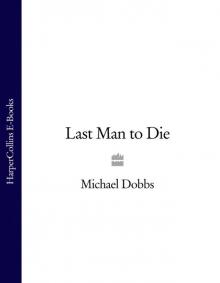 Last Man to Die
Last Man to Die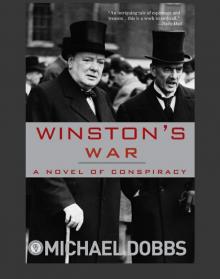 Winston's War
Winston's War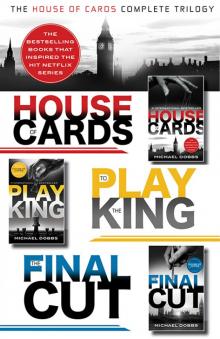 The House of Cards Complete Trilogy
The House of Cards Complete Trilogy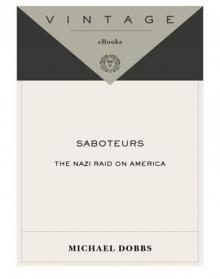 Saboteurs
Saboteurs The Touch of Innocents
The Touch of Innocents WC02 - Never Surrender
WC02 - Never Surrender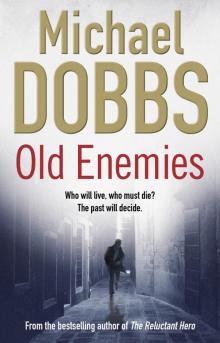 Old Enemies
Old Enemies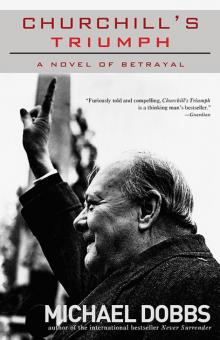 Churchill's Triumph
Churchill's Triumph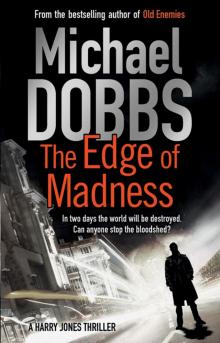 The Edge of Madness
The Edge of Madness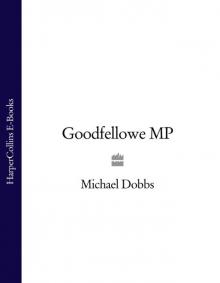 Goodfellowe MP
Goodfellowe MP The Final Cut
The Final Cut Whispers of Betrayal
Whispers of Betrayal Churchill's Hour
Churchill's Hour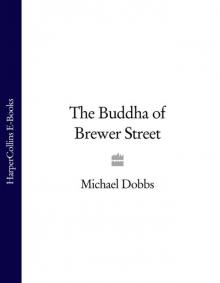 The Buddha of Brewer Street
The Buddha of Brewer Street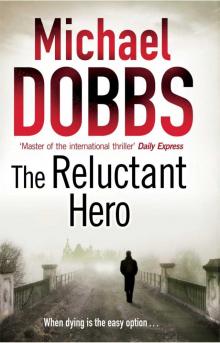 The Reluctant Hero
The Reluctant Hero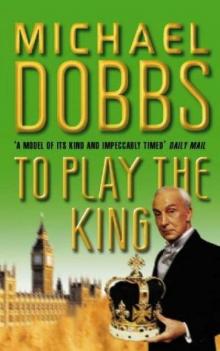 To Play the King
To Play the King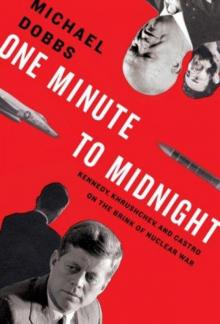 One minute to midnight
One minute to midnight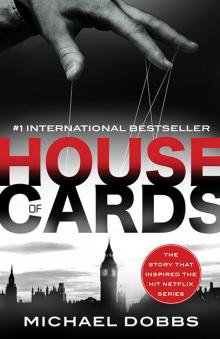 House of Cards
House of Cards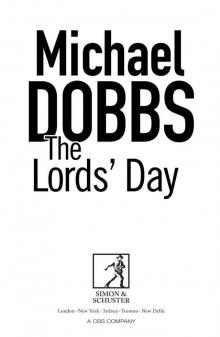 The Lords' Day (retail)
The Lords' Day (retail)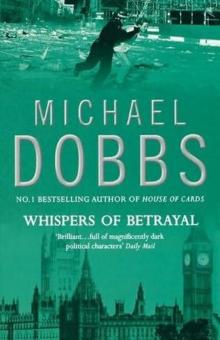 Whispers of betrayal tg-3
Whispers of betrayal tg-3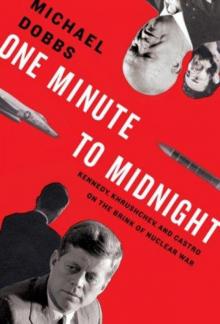 One minute to midnight: Kennedy, Khrushchev, and Castro on the brink of nuclear war
One minute to midnight: Kennedy, Khrushchev, and Castro on the brink of nuclear war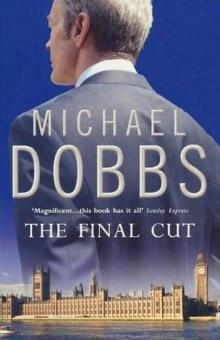 The Final Cut fu-3
The Final Cut fu-3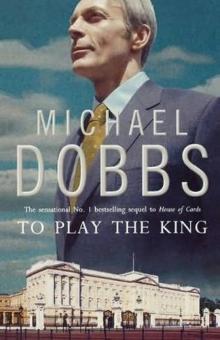 To play the king fu-2
To play the king fu-2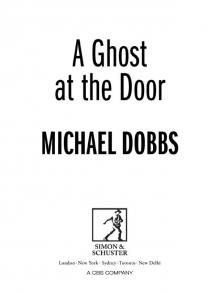 A Ghost at the Door
A Ghost at the Door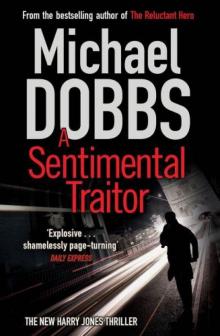 A Sentimental Traitor
A Sentimental Traitor